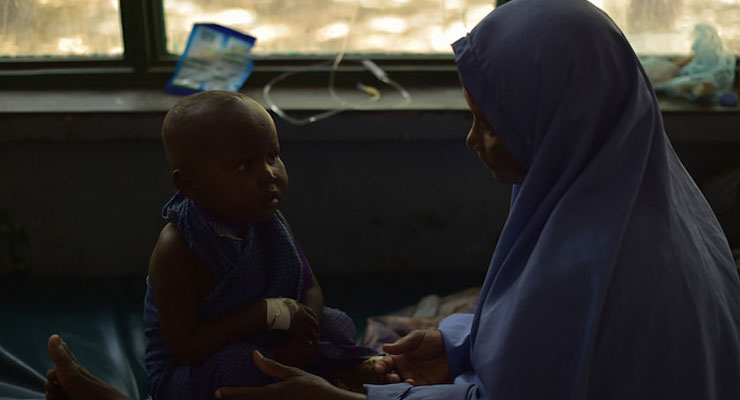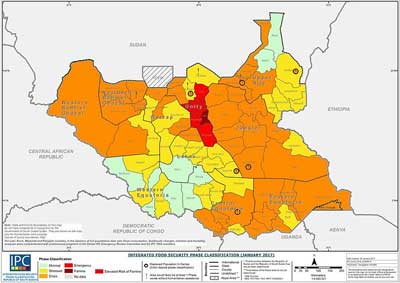
Although the United Nations has managed to raise $90 million, global humanitarian agencies are falling short of the $5.6 billion needed to prevent a total of four famine crises currently underway in Africa and western Asia. The countries most impacted are South Sudan, Somalia, Nigeria and Yemen. The situation in all four is exacerbated by war-torn conditions, which makes it difficult for delivery of food aid.
For South Sudan and Nigeria, millions have migrated away from their farms, putting agriculture and trade to a halt. In fact, even deliveries of food by agencies have failed due to the militias and government soldiers that unleash murderous attacks on civilian villages using brutal force and inhumane tactics. The danger of assisting, as well as the large number of civilians who flee, makes it nearly impossible to provide the humanitarian care that has already been funded. Reports claim that attacks are also carried out on humanitarian compounds that store the food, which shows the extreme detriment that the militias create. Politically, the Transparency International names the South Sudan’s government as the second most corrupt in the world, which is demonstrated by their recent proposal to increase the work permit fee for humanitarian workers attempting to alleviate the severe hunger.

Meanwhile, Somalia battles a drought along with war, causing extreme dehydration as well as a lack of both mechanical and nutritious power to grow and harvest crops. In fact, hundreds of thousands of Somalians, both starving and dehydrated, are leaving rural areas and heading to major centers in hopes of accessing food aid. Meteorological experts, however, are not seeing a brighter future: predictions suggest the drought has a 55% chance of developing into one of the worst in history, with an even drier few months ahead. Children are also facing disease and death due to families relying on unclean and unsafe water sources.
Yemen, lastly, has the most chaos due to its particularly intense war, which greatly puts a strain on transportation and the importation of foods.
For all four countries, the culmination of war, poverty, mass displacement, inaccessibility to aid, drought, and crop failure is a formula for famine, with the ultimate result being severe food deprivation that threatens millions of lives.
Unfortunately, the gravity of these potential famines also impact and deplete the resources that have contiguously been provided to hungry families in Africa and elsewhere. For instance, other areas in the world that face less starvation yet dire food shortages, such as Kenya and Uganda, are forced to live on half the normal WFP emergency rations.
But there is hope. Expressing support works. Turkish Airlines, the only company flying to Somalia, has agreed to send food aid to thousands of Somalians after the hashtag #TurkishAirlinesHelpSomalia, which was started by Vine and Snapchat star Jerome Jarre.
The point is clear: time is running out to prevent famine. Already the UN has declared a state of famine for 100,000 people living in two counties in Unity State, South Sudan, and a million more in the same country are grappling severe hunger emergency with the threat of an official declaration looming ahead. Looking at the four countries together, there is approximately 20 million in desperate need of food and medical assistance. The recipe to save millions of lives entails the global community step out and literally cook up advocacy and assistance.
Find ways to donate to the relief effort here.
Leave a Reply